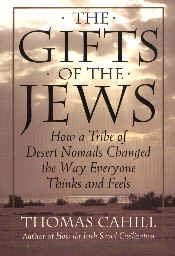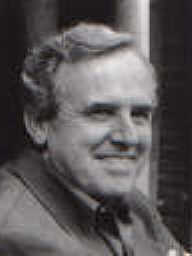Once again we find here that Cahill is projecting our current abilities onto the ancient people.
Rightly understood, the ancient people did not see correspondences, they saw spiritual realities. Our
children today have their so-called imaginary playmates, which are actual spiritual beings that we, as
adults are no longer able to see, so we discount them and call them imaginary, equating them with non-existence, up until now. Similarity the same adults interpreting the ancient people's reports of spiritual
beings equating those beings to non-existence and relegate those ancient people to a process of
"discerning correspondences." If one has any conception at all of the evolution of consciousness over time,
one must be clear on the fact that "discerning correspondences" accompanies a higher stage of
consciousness than merely reporting what one sees directly.
The process of long-lived patriarchs in the Bible is another curious phenomenon, unless one
understands the evolution of consciousness, particularly the consciousness of one's "I." Abraham was the
first human we know of in history who had a strong and active "I". Before and after him for many
centuries the "I" of the average human being was still developing. The word for "I" didn't exist in many
languages of the time, being subsumed in the structure of the verbs and nouns, as in the Latin phrase,
cogito ergo sum, which is normally translated as "I think, therefore I am." But all we see is "think,
therefore am," with the endings of the other words specifying that the words apply to the speaker of the
words. If one meditates on this phrase, one can imagine that its structure began in ancient times when Latin
and other earlier languages were being formed, and groups of people said together phrases like that in
community prayer, so that the original meaning of that ending was that it referred to a plurality of people
saying the phrase, but it still came to apply if only one person were saying it. In English when one says the
word "I", it is treated as if it were a plural noun, such as in "I have" — we never say "I has." We, as it were,
conjure up this original "group of people talking" whenever we make a sentence with "I". What this has
to do with the long-lived patriarchs is this: the names of the fathers were passed onto the sons and these
sons inherited not only the physical property but also the name and individuality of their fathers. Only
when a son died without a successor son was it considered that the named person had died. These
patriarchs spoke for their tribe and the "I" of those times was the "I" of the patriarch of the tribe. When
he died, when his name died, it was recorded as the death of the name, such as with Terah, the father of
Avram (Abram) in Genesis, the first book of the Bible:
[page 57] But when they had come as far as Harran, they settled there. And the days
of Terah were five years and two hundred years, then Terah died, in Harran.
Here we arrive at another "gift of the Jews" — the above quote is the end of a passage that describes
the names of the sons of Terah and their wives. It takes the form of a genealogical record of a family,
something Cahill rightly points out is a first for tales of that time. No more cyclic mythic stories of gods
and spirits for humankind — from then on, humans began to record the events of the common people and
the people who led them.
[page 60] Something new is happening here; but it is happening as all things new
must happen — in the midst of the old, usual, ordinary reality of what was then daily
life. "Nova ex veteris," runs the old Latin paradox. "The new must be born out of the
old."
The next "gift" is when Avram undertakes a covenant with his God, just as Cahill showed us
earlier that the ancient chieftains used to do with each. Here for the first time was a monotheistic God that
developed a personal relationship with one person, Avram, who spoke out of his strong sense of
individuality, out of his "I", and bargained for a covenant for his people. This was to be an unforgettable
covenant, a covenant that involved a marking of the flesh. Any Western male is more likely than not to
have this marking of the flesh which we call circumcision. A powerful covenant this was, one that has
lasted until this very day.
More was to come. Avram was to take his son Yitzhak (Isaac) up to the mountain top to be offered
as a burnt sacrifice. When Avram's hand is stayed and a lamb appears to replace his son, we have the
replacement of human sacrifice by animal sacrifice. Another gift. And yet, another gift appears, the word
"love" appears in the Bible for the first time. Cahill astutely points to the place where this happens, in the
narrative of the story that God began by saying, "Pray take your son, your only-one, whom you love,
Yitzhak."
Cahill uses the tetragrammaton YHWH over the vowel filled variations like Jahweh or Yahweh,
and tells us how he experiences the saying of the word YHWH without vowels, just consonants.
[page 110] But for me, when I attempt to say the consonants without resort to vowels,
I find myself just breathing in, then out, with emphasis, in which case God becomes
the breath of life.
He also uses various translations or interpolations of the meanings of YHWH, perhaps by inserting
various vowels as the ancient Hebrews did with their words without vowels. He comes up with, "I am he
who causes things", "I am the Creator", "I am who I am" "I will be-there with you." "He-Whom-There-Is-No-Escaping" and several others.
With these ingenious people, the world moved from the eternal unchanging cyclic time of
Gilgamesh and other ancient myths and peoples to linear time, from eternal time to real time, with a
direction, an end, and progress for the first time becomes possible. Cahill says, "That accomplishment is
intergenerational may be the greatest of all Hebrew insights." This insight gave humans the gift of
understanding that the world changed in real time and humans could be agents of that change. We take it
for granted today that new products will appear on the market; newer and better are word that are so
closely related that one seems to invoke the other without need for comment. That's an indication of a
deep process in our psyches and one placed there by a gift of the Jews. It was not always there, certainly
not for the Sumerians.
[page 128] If the brewer had announced his product as new — as singular and never-before-known — he would have been committing entrepreneurial suicide, for no one
would have drunk it. The Israelites, by becoming the first people to live -
psychologically — in real time, also became the first people to value the New and to
welcome Surprise. In doing this, they radically subverted all other ancient
worldviews.
The next gift of the Jews was "recess" — the concept of a rest period, a "ceasing" of work (which
is what "sabbath" means), a "septimanal punctuation" in which one day of the week was to be devoted to
restoring ourselves with "prayer, study, and recreation." Thus the gift of education in its earliest form came
to us from the ancient Hebrew traditions.
Are you maybe feeling a little guilty at all the gifts that we have received over the millennia from
these desert nomads? Good, that's another gift, "guilt" — the consequence of a pervasive sense of "ought-ness" which they first articulated for humanity, especially Western humankind. (page 145)
Do you sometimes get upset at all the labels on food and the child-proof caps on your medicines?
These activities of the Food and Drug Administration were made possible by the people who first
promulgated rules of cleanliness for the preparation of their food.
Do you vote? In many ways the democracy that we live in where the leader is chosen by a popular
vote is another gift of the ancient Hebrews, who for a time had only God for their king and ran a theocratic
democracy. With the anointing of Saul by the prophet Samuel to become King, things began to change.
As Cahill so tersely puts it, "because power adheres to the powerful, confirmation by the people has fallen
into disuse." Democracy as a gift was taken back and fell into disuse until modern times when through
efforts of men like Thomas Paine and others, it was wrested from the hands of monarchs for good.
In the songs of David, who is to follow Saul as King, we receive another gift from the ancient
Hebrews, the singing out of the individuality, of the "I". In the 23rd Psalm, notice the occurrences of the
"I": "I shall not want", "Yea, though I walk through the valley of the shadow of death, I will fear no evil",
and "I will dwell in the house of the Lord for ever." (page 200)
The next gift came to us from King Solomon and it is one that many would prefer to give back to
the ancient Hebrews, namely, taxes.
We have opened up our presents, those gifts from the Jews and found most of them worthy, but
worthy or not, they have become a heritage of the Western world that pervades our thoughts, our actions,
our values, our daily lives — we are what we are because of those gifts — we can look back as Cahill hints
that we can and understand who we are as the ancient Hebrews would:
[page 228] They could now look back over the whole of their history — from the call
of Avraham [Abraham] to journey into the wilderness, to the call of Moshe [Moses]
to lead the people from slavery to freedom, to the anointing of David, the king who
sang "I," to the prophets who warned them that nothing they had yet done was
enough for God — they could look back and see that God had been leading them all
along, from one insight to another, and telling them a story, "something new on
earth," the story of themselves.
~^~
Other Books by Thomas Cahill Reviewed: How the Irish Saved Civilization
~^~
Any questions about this review, Contact: Bobby Matherne
~~~~~~~~~~~~~~~~~~~~~~~~~~~~~~~~~~~~~~~~~~~~~~~~~~~~~~~~~~







